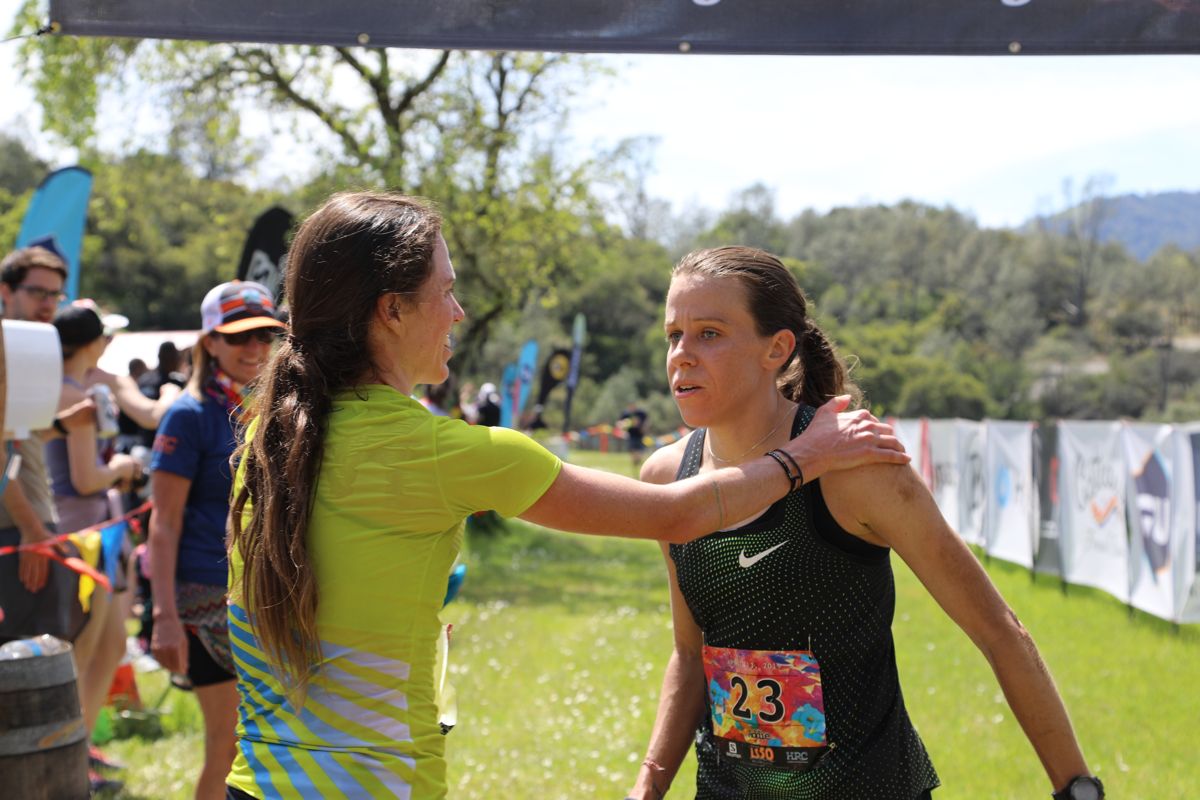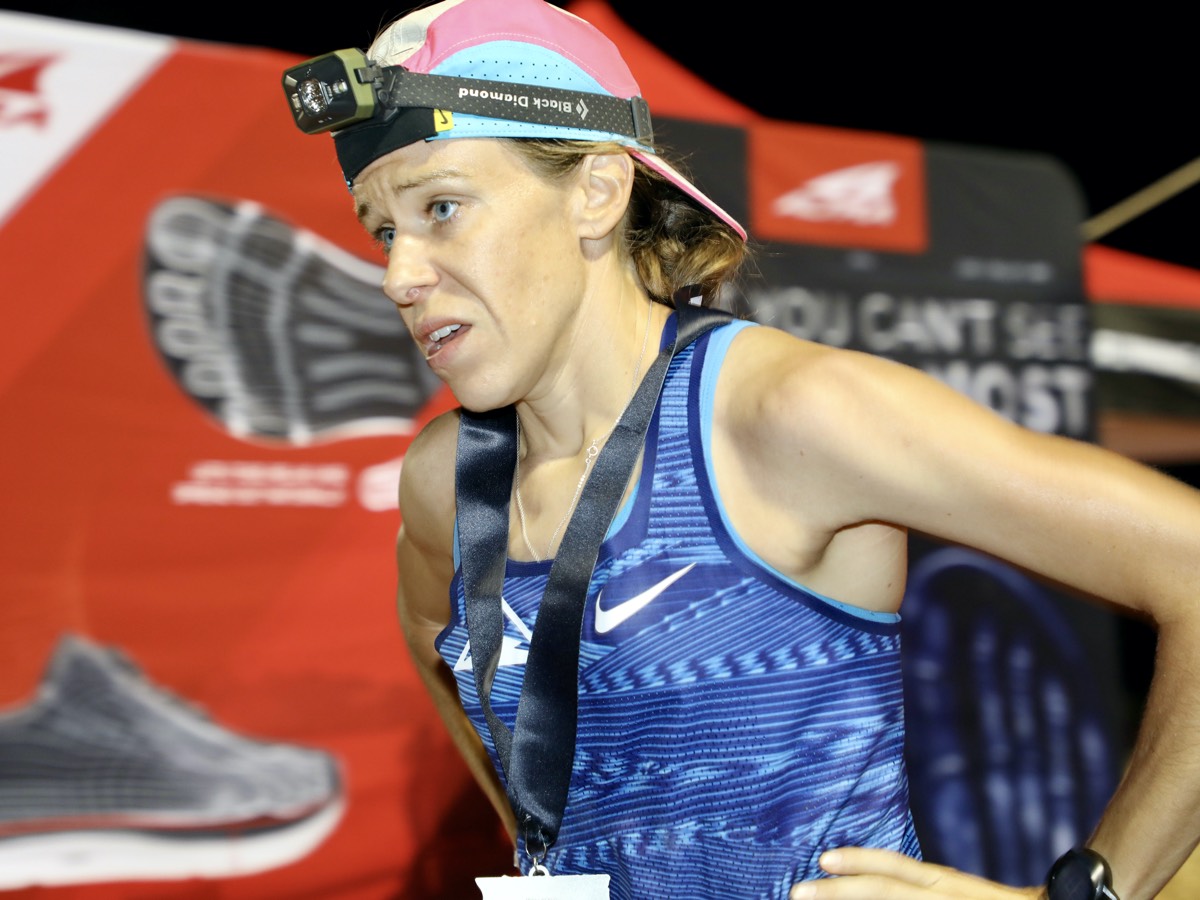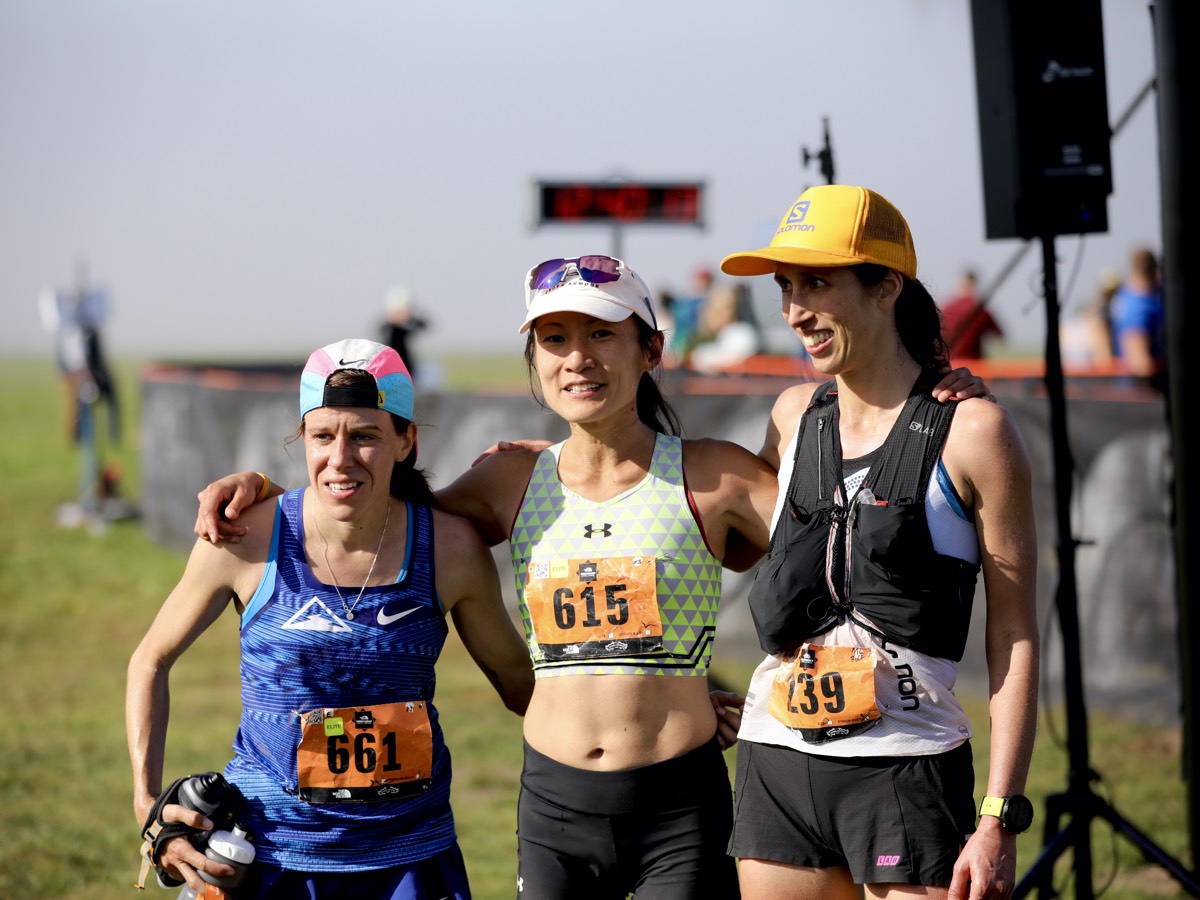
Thanks to Patagonia for sponsoring this week’s Catching Up With article!
“There’s always time,” Addie Bracy insists. I’d just lightly challenged her on how an ultrarunner can find time for both physical and mental training, and she shot through it right away. “A lot of things can be incorporated with what you’re doing. You can spend five minutes of a long run focusing on something,” she cheered. Bracy, the 2018 Leadville Trail 100 Mile runner-up and the 2019 Western States 100 ninth-place finisher, is the author of Mental Training for Ultrarunning. The book is set to publish June of 2021, around the time of Bracy’s participation in this year’s Western States 100.
I’d always thought that there’s actual running, and there’s supplemental bodywork, and tertiary to that is mental training. Bracy reframes that order though. “I don’t want to say one thing is more or less important, but sometimes mental training can make a bigger difference than some of that other stuff,” she explained. “When it comes to physical ability and preparation, hard work matters, but there’s some maximum potential based on genetic ability. Psychological skills though, nobody has an inherent advantage and it can be easier to maximize.”
It sounds foreign to me, perhaps reflecting my lack of them, and I ask Bracy to better describe what psychological skills really are. She happily answers without hesitation. “Specific to ultrarunning, you can reflect on an experience and it’s rare to have a finish with perfect paces. It’s more about sustained discomfort. If you’re not putting in the mental work, negative thoughts can start trying to steal your attention. There’s different focus tools you can use, like not thinking about a blister, and a lot of breathing exercises to minimize anxiety and pre-race nerves.”

Addie Bracy (right) with Anna Mae Flynn (left) after Addie took third at the 2019 Lake Sonoma 50 Mile. All photos: iRunFar
Bracy’s credibility comes from both her running accomplishments and her education. She earned an undergraduate communications degree at the University of North Carolina, and competed there at the top levels of NCAA cross country and track. In 2017, she went to graduate school and finished two years later with a master’s degree in sport and performance psychology. “I was doing trail and mountain running going into school, and I ran my first ultramarathon while I was in school,” Bracy said of the sequence. “[Ultrarunning] really opened my eyes, there was an idea and intrigue,” she said while recognizing the practical applications of her psychology program to her new discipline.
“I had a few internships and an externship. I worked with the U.S. Olympic and Paralympic Training Center in Colorado Springs, Colorado. Shooters, some pretty high-level skiers, tennis players. Psychological skills are transferrable [between sports],” she said. “With the shooters, we did a lot of biofeedback. If you’re anxious, you can have sweaty palms, obviously that’s not good for shooters.” Currently, Bracy’s in private practice under the Strive Mental Performance title.
“Not as hard as I would’ve thought,” she answers with a laugh, when asked about how difficult it was to publish a book. Her second pitch stuck, but she immediately thought, “Oh crap, now I have to figure out to how to write a book.” Bracy did just that over the next 14 months. “The concept is 10 chapters, and each chapter is about a different psychological skill relevant to ultrarunning,” she explained. “Each chapter has a case study of a runner that exemplifies that skill. Like the Clare Gallagher chapter is about finding your why, and Courtney Dauwalter is about adaptability and problem solving. With Jim Walmsley, he didn’t know that he had a psychological skill set, but I disagree that it’s not part of his tool kit.”
Bracy weaves the personal experiences of well-known ultrarunners with the science behind it. “It’s interesting, sharing stories that incorporate psychological skills and human behavior,” she smiled. “And there are 30 different exercises that readers can take away and implement.” She insists that she hasn’t mastered the skills herself. “If anything, I need to practice what I preach. I’ve been successful at ultras, but maybe not as much as I should be. It’s hard for me to be moderately uncomfortable for 15 hours.”
Professionally, Bracy’s working with about 30 athletes, and really focusing on running as her specialty. “I’m pretty plugged into running. I think I’ve had five Olympians stay in my basement. It was definitely a decision point, ‘Am I okay pigeonholing myself into one community?'” Bracy questioned. “But I love this sport and have a lot of experience. I’ve run everything from the steeplechase to 100 miles. I’m really fortunate to have found this community. I’ve loved being a part of it since a young age.”
Call for Comments
Share your Addie Bracy running and coaching stories in the comments section!


